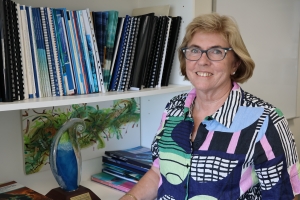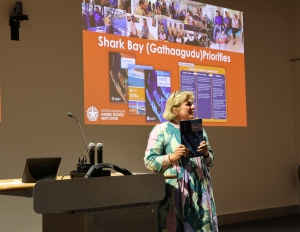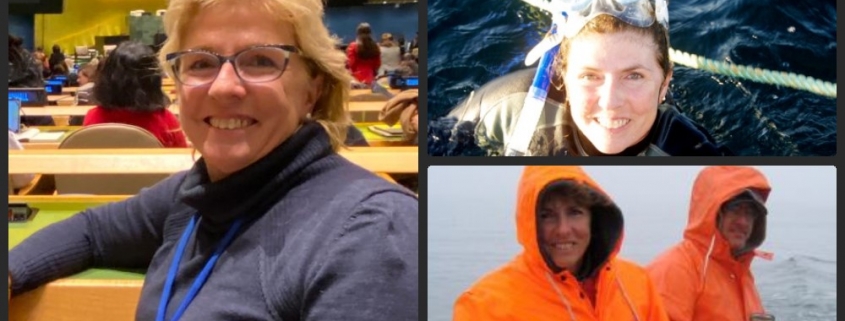Celebrating marine science opportunities on International Women’s Day
As a graduate scientist with a passion for marine biology and fisheries, Jenny Shaw was excited to be selected for an expedition to the Abrolhos Islands. That was, until she was bumped from the vessel’s manifest when someone more senior discovered ‘J. Shaw’ was a woman. The knockback didn’t deter her, and in the decades since she’s become a sought-after team member on research and commercial fishing vessels from Alaska to the Abrolhos.
Now Research Director at the Western Australian Marine Science Institution Dr Shaw is enjoying a career that is driven by taking up opportunities.
“My advice to anyone in marine science would be to embrace opportunities and take risks,” Dr Shaw said.
“I have travelled and worked in many different places and, as the expression goes, enjoyed taking the road less travelled.”
Born in Geraldton and raised in Carnarvon and Albany, her life has revolved around the ocean. Every morning, year-round, starts with a swim in the sea.
A founding member of Women in Seafood Australasia, Dr Shaw was inducted into the National Seafood Hall of Fame in 2019. “That was a very proud moment.” She has also been recipient of numerous scholarships, multiple awards and a member on a variety of local and national boards.

WAMSI Research Director Dr Jenny Shaw.
On International Women’s Day last year, she spoke at a United Nations forum in New York about climate change impacts.
But Dr Shaw was investigating climate change back in the early 1990s as a researcher on Rarotonga, which is the largest and most populace of the picturesque Cook Islands.
“Lunch on my first day in the office was spent eating fish by hand on woven leaf plates watching whales breach beyond the reef.”
“I spent three years on Rarotonga working for the Cook Islands Conservation Service including on a climate change project in which we did baseline coral and fish surveys as part of an international data base for GOOS (Global Ocean Observing System).
“There was an awareness of global warming and climate change then and the imminent risks to island communities.
“In some ways the cause went backwards in the years and decades afterwards, likely because of powerful interest groups which tried to derail the message, muddy the waters, and polarise opinion” she said.
Dr Shaw gave her first public talk on climate change 30 years ago and continues to speak up, including last year at the UN and in Bergen, Norway at the ‘Effects of Climate Change on the World’s Oceans Symposium’.
She feels now there is finally a groundswell of support for change with record temperatures, extreme fires and coral bleaching bringing home the harsh reality of climate change.
At WAMSI, her interest in climate change science has continued.

The marine scientist led and co-authored the 2023 Science Plan for Shark Bay (Gathaagudu) which involved extensive consultation with the local community, including Indigenous Traditional Owners along with managers and scientists. The key priority for stakeholders in the area, which is still recovering from a devastating marine heatwave more than a decade ago, was climate change.
There is more work to do.
“I would say to young marine scientists, don’t be put off by small setbacks, take every opportunity and most of all – have fun.”

